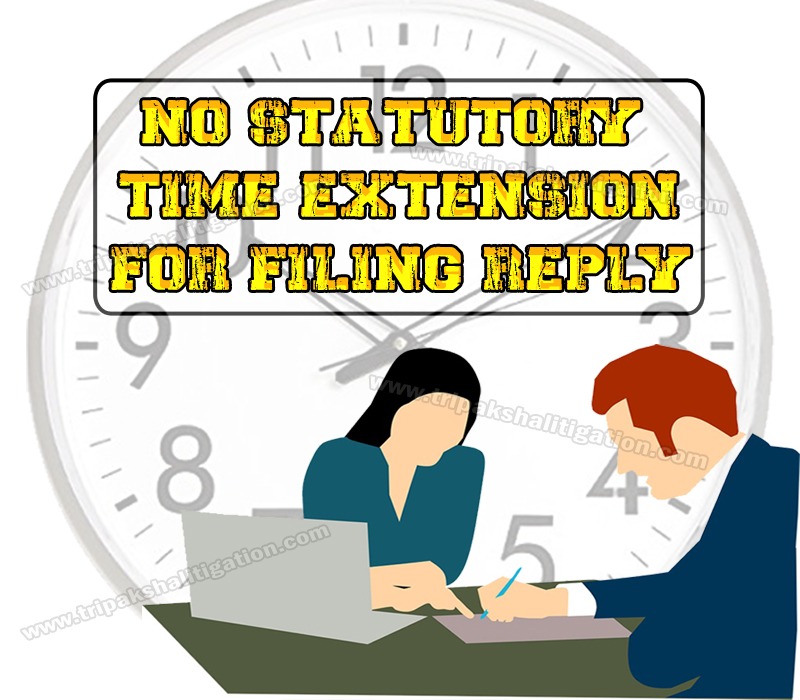The five bench of the Supreme Court of India clearly held that opposite party cannot be condone to file his reply beyond 45 days to a complaint filed under consumer protection act.
The Constitution Bench of the Hon’ble Supreme Court in the matter of New India Assurance Company Limited versus Hilli Multipurpose Cold Storage Private Limited, under the Consumer Protection Act 1986 (hereinafter called as Act) has clearly decided the limitation period pertaining for filing a reply to a complaint under the Act. The Supreme Court has held that the time prescribed for filing a reply to the complaint under Section 13(2)(a) of the consumer protection Act is mandatory and not merely directory. Supreme Court has further held that the commencing point of limitation of 30 days under Section 13 ofConsumer Protection Act would be from the date of receipt of thenotice accompanied with the complaint by the opposite party, andnot mere receipt of the notice of the complaint. That the reason behind for passing the order in the present matter is just for speedy justice of consumer disputes.
In this present case that is titled as New India Assurance Co. Ltd. v Hilli Multipurpose Cold Storage Pvt. Ltd., held that procedural provisions of law in this case the time limit prescribed for filing a written statement under the Consumer Protection Act, 1986 were mandatory in nature. The SC was guided by observations in Dr. J.J. Merchant & Ors. v Shrinath Chaturvedi (2002) 6 SCC 635 to the effect that the prescribed time limit for filing of a written statement under the Code of Civil Procedure, 1908 (“CPC”) was ‘required to be adhered to.’
While passing this order, the Supreme Court has relied upon Section 13 of the Act and Section 13(2) of the Act makes it clear that the copy of the complaint which is to be sent to the opposite party, is to be with the direction to give his version of (or response to) the case (or complaint) within a period of 30 days. It further provides that such period of 30 days can be extended by the District Forum, but not beyond 15 days., failing which the District Forum shall proceed the opposite party as ex-parte on the basis of evidence made available by the complainant. It is decided that no further discretion of granting time beyond 45 days is intended under the Act. Section 13(3) of the Act and also clarifies that once the proceedings comply with this procedure, the same cannot be questioned in any Court on the ground that principles of natural justice have not been complied with any of the case.
in addition, the Court noticed that subsection (3A) of Section 13 was inserted, providing that the complaint should be heard as expeditiously as possible and that endeavour should be made to normally decide the complaint within 3 months, and within 5 months where analysis or testing of commodities was required. The Provisos to the said subsection required that no adjournment should be ordinarily granted and if granted, it should be for sufficient cause to be recorded in writing and on imposition of cost, and if the complaint could not be decided within the specified period, reasons for the same were to be recorded at the time of disposing of the complaint.
Two issues/questions arose and decided well.
That the Constitution Bench of Hon’ble Supreme Court had decided the two issues that is given as under
- Whether Section 13(2)(a) of the Consumer Protection Act, which provides for the respondent/opposite party filing its response to the complaint within 30 days or such extended period, not exceeding 15 days, should be read as mandatory or directory; i.e., whether the District Forum has power to extend the time for filing the response beyond the period of 15 days, in addition to 30 days.
- The second question which is referred is as to what would be the commencing point of limitation of 30 days stipulated under the aforesaid Section.
ANSWER OF THE ABOVESTATED ISSUES/QUESTION
Answer to the first question is that the District Forum has no power to extend the time for filing the written statement to the complaint beyond the period of 15 days in addition to 30 days as is envisaged under Section 13 of the Consumer Protection Act; and the answer to the second question is that the commencing point of limitation of 30 days under Section 13 of the Consumer Protection Act would be from the date of receipt of the notice accompanied with the complaint by the opposite party, and not mere receipt of the notice of the complaint.
CONCLUSION:
Via the abovestated judgment the Hon’ble Supreme Court of India with the superior constitution bench has introduced the sharp time to file the reply of consumer complaint. The opposite party proceeded ex-parte if the reply not filed within the stipulated period of 45 days. The purpose of this judgment is only to speedy disposal of the consumer complaint further more provide that the time provided under Section 13(2)(a) of the Act has to be read as mandatory, and not directory.
You may contact me for consultation or advice by visiting Contact Us and Call us


Reply is to be filed within 45 days and case is to be decided within 90 days. So law/rule for litigants not for presiding officers. Cases are pending in forums and appellate forums since long time and retired POs are not able to decide them. Rule of 45 days is arbitrary some time opposite party is coming from other cities and not able to file reply within 45days. Therefore liberty be granted to forum to extend time if reason appears to be genuine.
Welcoming inputs.